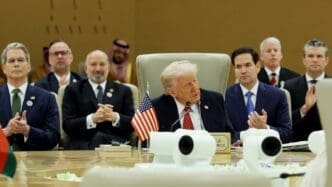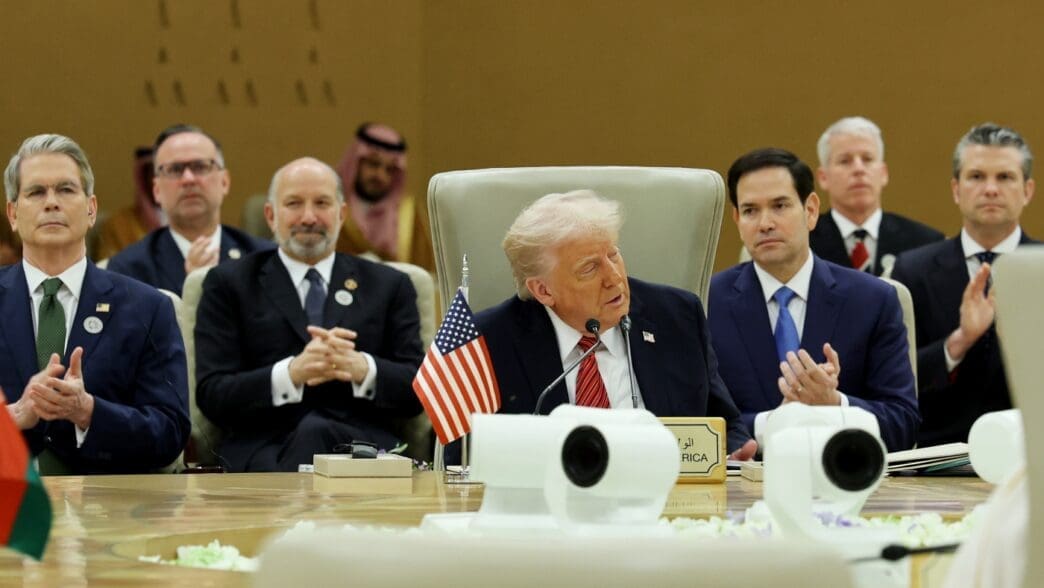In a significant diplomatic engagement, President Donald Trump held discussions with Syria’s interim President Ahmed al-Sharaa in Riyadh, Saudi Arabia. This meeting, which lasted approximately thirty minutes, took place on the sidelines of Trump’s visit to the region. The talks coincided with Trump’s announcement to lift U.S. sanctions against Syria, marking a potential turning point in Syria’s reconstruction efforts after years of civil war and isolation.
The removal of sanctions, previously deemed “crippling,” has been welcomed by Syrian officials as a crucial step towards national recovery. President Trump’s decision to lift these sanctions was influenced by requests from Saudi Crown Prince Mohammed bin Salman and Turkish President Recep Tayyip Erdoğan. Trump expressed hope that this move would offer Syria “a chance for greatness,” acknowledging the challenges ahead but emphasizing the opportunity it presents.
During the meeting, Trump encouraged Sharaa to engage in the Abraham Accords, aiming to normalize relations with Israel and reduce terrorism. This diplomatic push was highlighted by the White House press secretary, who shared an image of the encounter. However, the meeting was closed to the press traveling with Trump.
Historically, the United States has imposed numerous sanctions on Syria, targeting the regime of Bashar al-Assad. Assad’s departure from Syria in December, following a swift campaign led by Sharaa and allied rebels, left the sanctions intact due to international skepticism about Sharaa’s past affiliations with extremist groups. Although previously designated as a terrorist, Sharaa’s commitment to inclusive governance and minority protection led to the removal of this label. Despite ongoing concerns about his leadership amidst ethnic tensions, Sharaa has demonstrated diplomatic acumen, seeking global support to lift sanctions.
Efforts to rebuild Syria have seen Sharaa engaging with various international leaders, including a recent visit to French President Emmanuel Macron, who supports relaxing the sanctions. Additionally, Sharaa’s administration has signaled potential cooperation with Israel, which has conducted airstrikes in Syria to prevent arms proliferation and protect the Druze community. Israel’s strategic military presence along the Golan Heights reflects its security priorities post-Assad.
Trump’s sanction-lifting announcement was met with applause at a Saudi investment forum, underscoring the regional anticipation for economic engagement with Syria’s resource-rich landscape. Previously restricted by U.S. policies, Gulf states are eager to invest in Syria’s mineral and oil sectors. The sanctions had left Syria reliant on Russian support, with Moscow maintaining military bases and having sheltered Assad. The shift in U.S. policy opens avenues for Syria to attract diverse international investment and forge new alliances.














